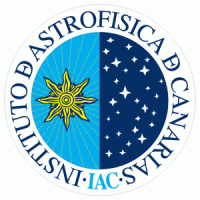›XXVII Canary Islands Winter School of Astrophysics:
Presentation
The XXVII Canary Islands Winter School of Astrophysics, organized by the Instituto de Astrofisica de Canarias (IAC), focuses on High Time Resolution Astrophysics. The School welcomes a maximum of 50 PhD students and young Post-Docs, and provides a unique opportunity for the participants to broaden their knowledge in this field of Astrophysics.
Scientific Rationale
High Time Resolution Astrophysics (HTRA) concerns itself with observations on short scales normally dened as being lower than the conventional read-out time of a CCD. As such HTRA is a vital tool in understanding a range physics from a diverse objects and radiative processes. Summary. Because of their small physical size, variability at the fastest time-scales are associated with compact stellar remnants (black holes, neutron stars, and white dwarfs) which is tightly related to their relevant physical processes and emission mechanisms. Current high time-resolution observations of compact objects are providing remarkable insights into fundamental questions, such as how black hole accretion takes place, how jets and outflows operate and the extreme gravity conditions around neutron stars and stable orbits around stellar mass black holes. Indeed it is becoming increasingly clear that multi-wavelength high time-resolution observation is the best way to disentangle the physical origin of the complex broad-band spectral emission observed from HTRA is not limited to only compact objects. Indeed transit observations, involving fast timing, is providing vital information on the size of, and satellites around exoplanets.
The expansion of astronomy into new frequency ranges, going far beyond the optical band, has dominated astrophysics in the last decades of the past century. Radio, X-ray and Gamma-ray astronomy already routinely observe at timescales down to microseconds and this has lead to a number of fundamental discoveries. The next frontier for observational astrophysics is the sub-second temporal domain}, where the physics and astrophysics of compact objects becomes important. HTRA is the only way to make a major step forward in our understanding of several important astrophysical and physical processes.
This Winter School aims to bring together in a relaxed working atmosphere a number of the leading scientists working in this field and PhD students and recent postdocs. It will tackle many aspects of HTRA Astrophysics, covering the fundamentals, the tools and applications to observations at different wavelenghts. The School is particularly designed to introduce young researchers in the use of HTRA as a tool in their current work.
Track this event on your Apple calendar














 Spain
Spain